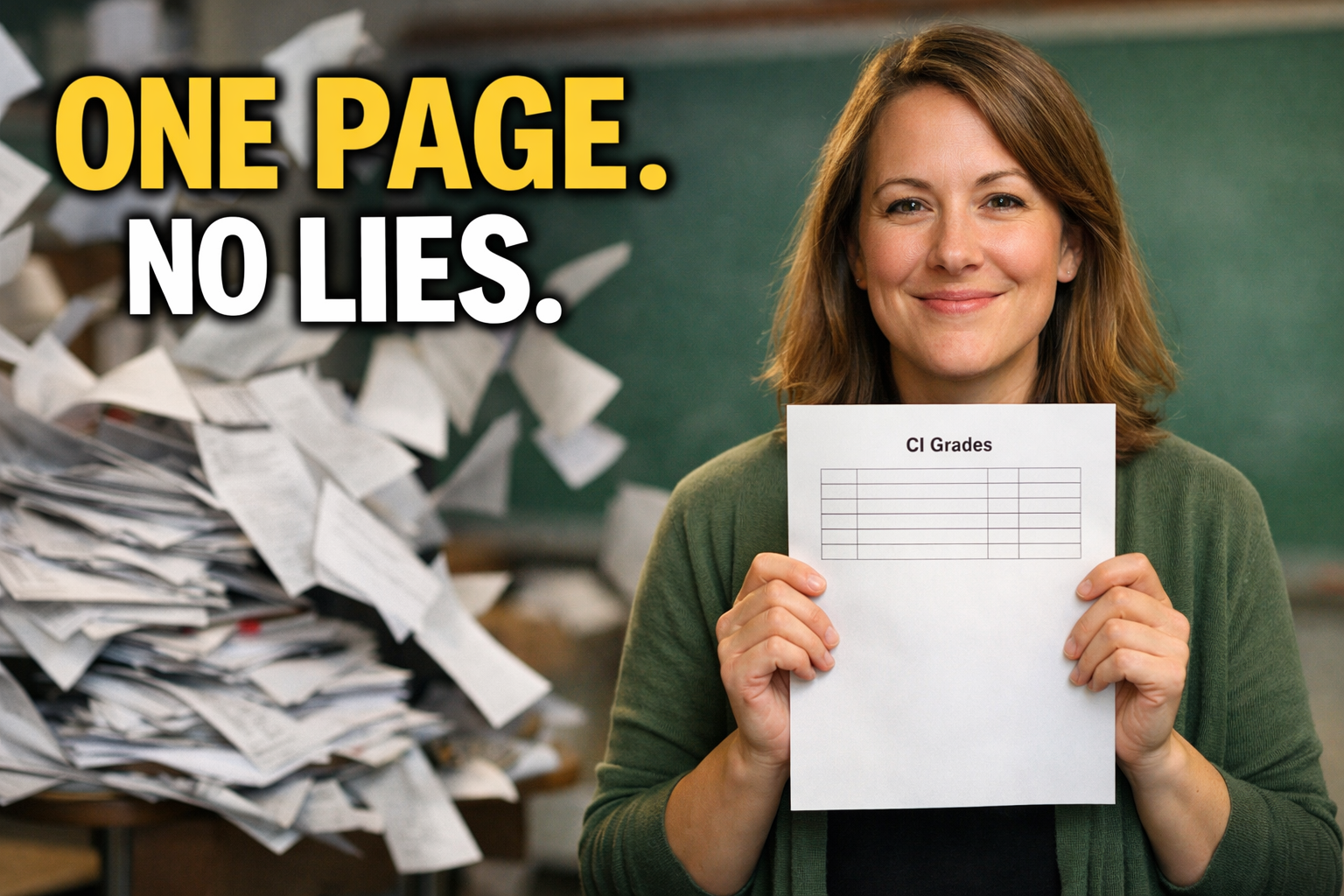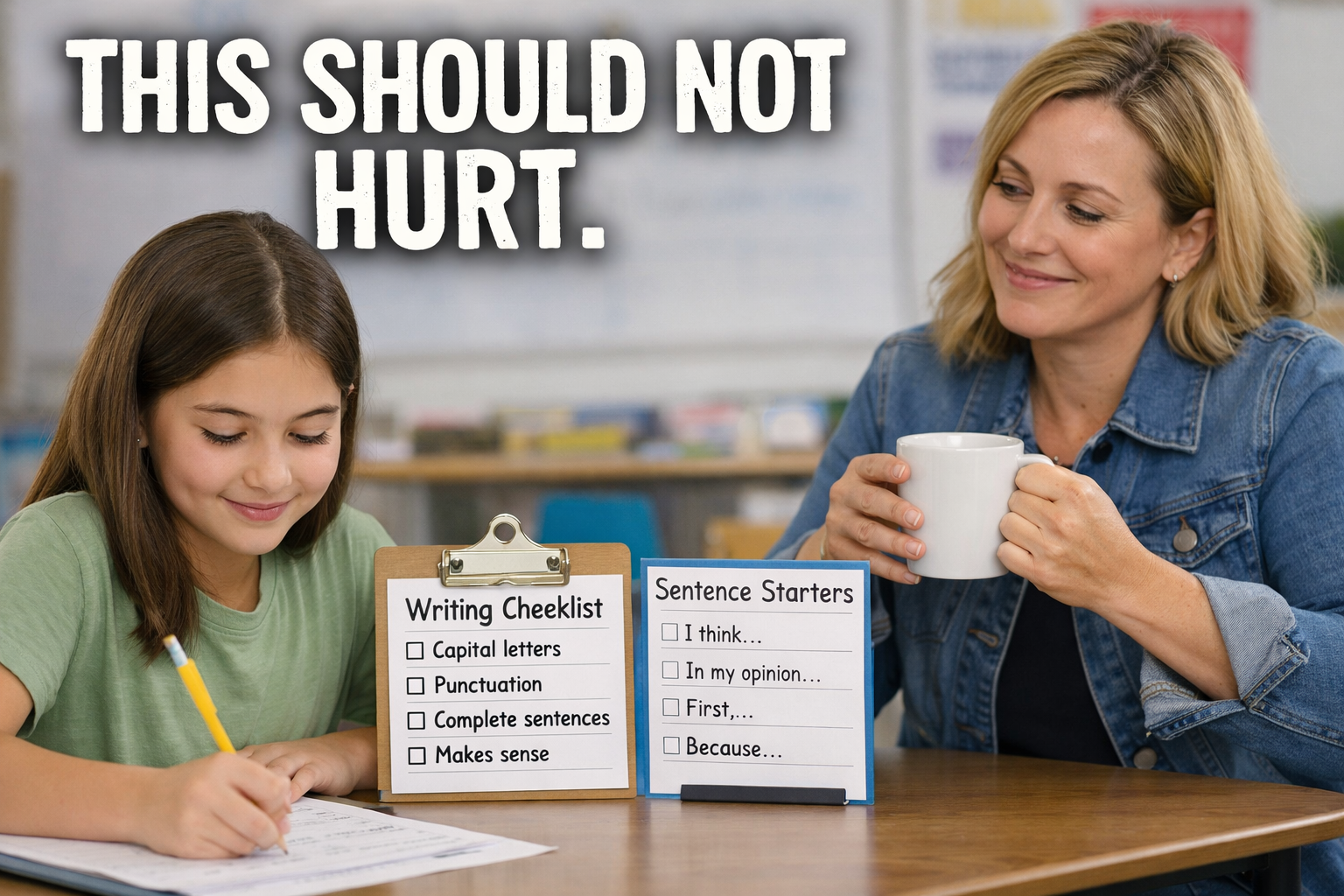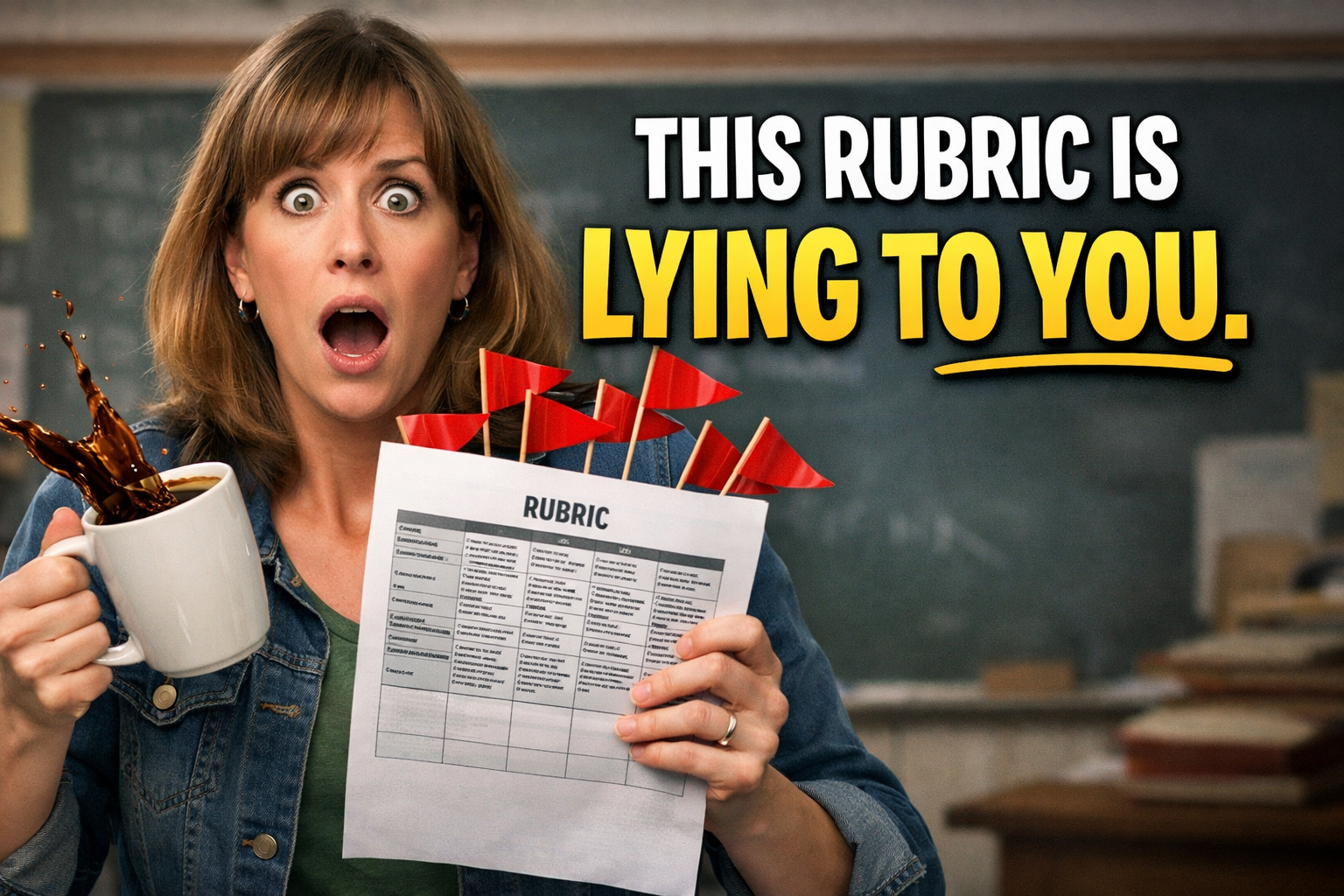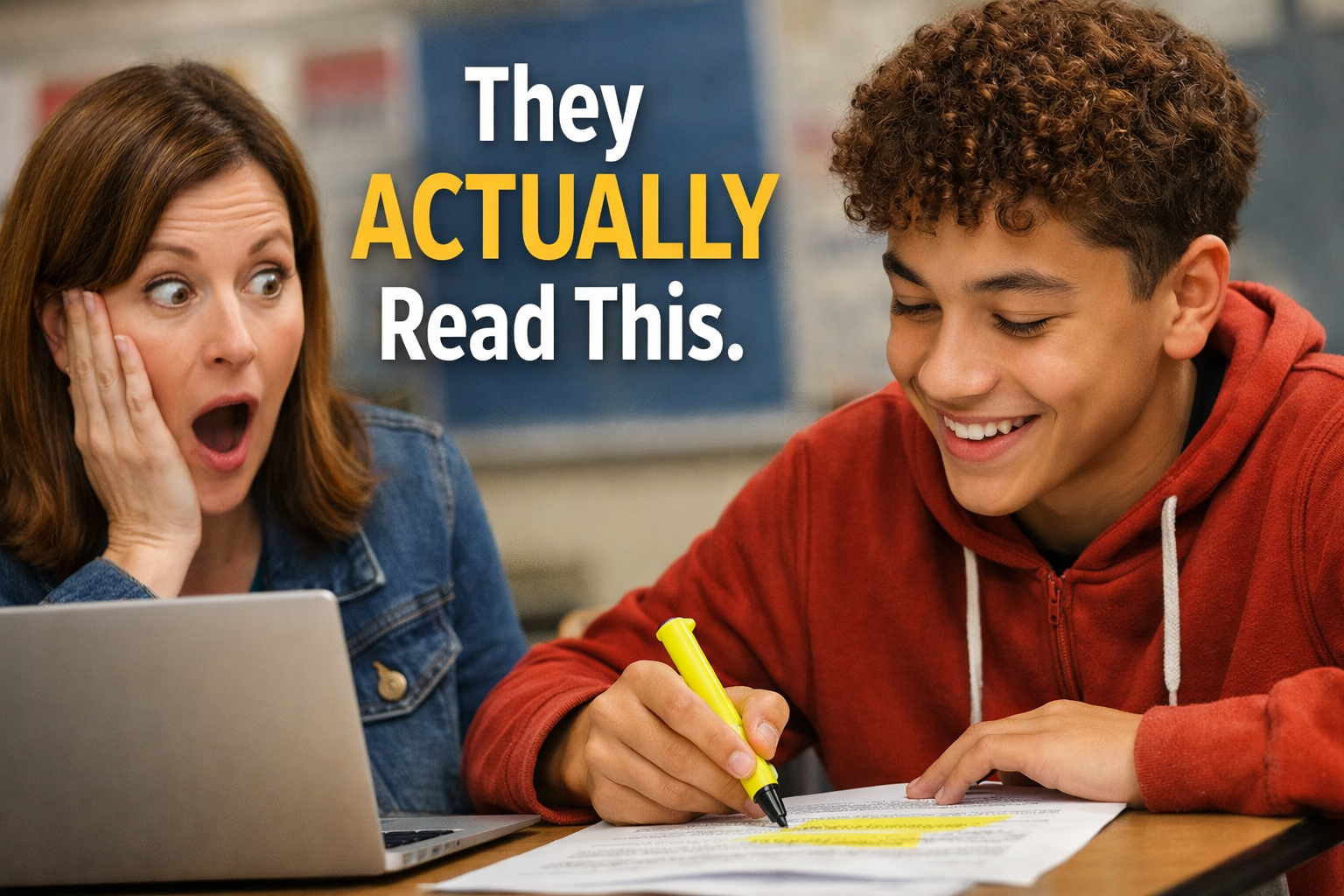
Having presented for hundreds of people and dozens of school districts, there's nothing that seems to get people riled up more than the concept of the minimum F.
I don't know if it's because the American traditional grading scale is so ingrained in our psyche, because fundamentally there's a misunderstanding how grading and percentages work, or if there's some other reason that the idea of the minimum F causes one's temperature to boil over.
I will admit that there is nothing so personal as grades when it comes to teachers and teaching. It's one of the last strongholds that the classroom teacher still has control over. But whether you are for or against minimum Fs, the fact remains, that our current, traditional American grading system, based off the 100% scale is hurting students in a big way.
For those of you who aren't familiar with the minimum-F concept, let me get you up to speed. The idea behind the minimum F is to cut the bottom-most percentage possible to 50%. In doing so, now all grades are created equal--each grade is worth 10%. The traditional system allocates 60% to the F while the rest of the grades only get 10%.
Just looking at it that way should be enough to convince everyone, at least at the most basic level, that it's unfair to allocate 60% to any one grade, let alone the failing one. But, in my experience, it's not that easy.
The main barrier to adopting the idea of the minimum F is that teachers don't want to give 50% to a student who didn't do any work, and I can understand that. But for most schools, on the report card and transcripts, the percentage is not reported, so it doesn't matter whether the student earned 59% or 2%, the student failed.
The main point of grades is to give a standard representation of what a student's knowledge and ability is in a particular discipline. If, then, we stop looking at grades as a percentage, a piece of a pie so-to-speak, and have grades truly represent what students know and can DO with that knowledge, then the minimum F becomes more reasonable.
I've never liked how grades often represent the number of assignments completed vs the number of assignments given. That really doesn't reflect a student's ability. If, instead of thinking of grades as percentages out of 100, we start thinking of grades as ability levels, we can see that limiting the bottom at 50% is not detrimental and actually helps students achieve more in the long run.
I propose looking at grades like this: F = beginner, D = novice, C = intermediate, B = proficient, and A = advanced. So here, whether the student earned an F--did the work but didn't demonstrate knowledge or ability—or didn't do the work at all, they are still a beginner and earned an F because of lack of demonstration of knowledge or ability.
But by limiting the bottom-most percentage to 50%, the student still has a chance to work harder and improve their grade. When we give a student a 0 on an assignment, it takes 1000 100% grades of equal value to bring up the grade to 99.9%. Students already know this intuitively, so when this happens, and they perceive it will be too much work to improve their grade, they check out and end up causing classroom-management issues in the classroom and often end up dropping/failing out of school. If we tell them that their grade is currently at 15% and they need at least a 60% to pass, that's not doable in a student's eyes and they give up.
However, by limiting the grade to 50%, a student still sees a 10% increase as doable and will put the effort in to try to get there. If they don't, they still failed, but we don't have to rub their noses in it.
This minimum F becomes a moot point if we think of grades as not percentages, but as rubric grades where each grade is separated by 1 point: F = 0, D = 1, C = 2, B = 3, and A = 4. If grades were tracked this way, then the idea of a minimum F isn't needed because each grade is equal from the get go. And what's better, there's no conversion needed when reporting grades as GPA as the grade-point average scale is the same.
In my eyes, I want grades to represent what a student knows and can do with what they know in my classroom. I don't want to use grades as a punishment for a behavior--not doing the work. I can teach that lesson another way. And in my experience, when I use the minimum-F idea in my classroom, my students get it, parents get it, and there's a sense of fairness. And in the end, my students are more motivated to succeed knowing that their grade is not stacked against them before they even enter my classroom in September.
I'm interested to know what you think! Please leave your comments below.



